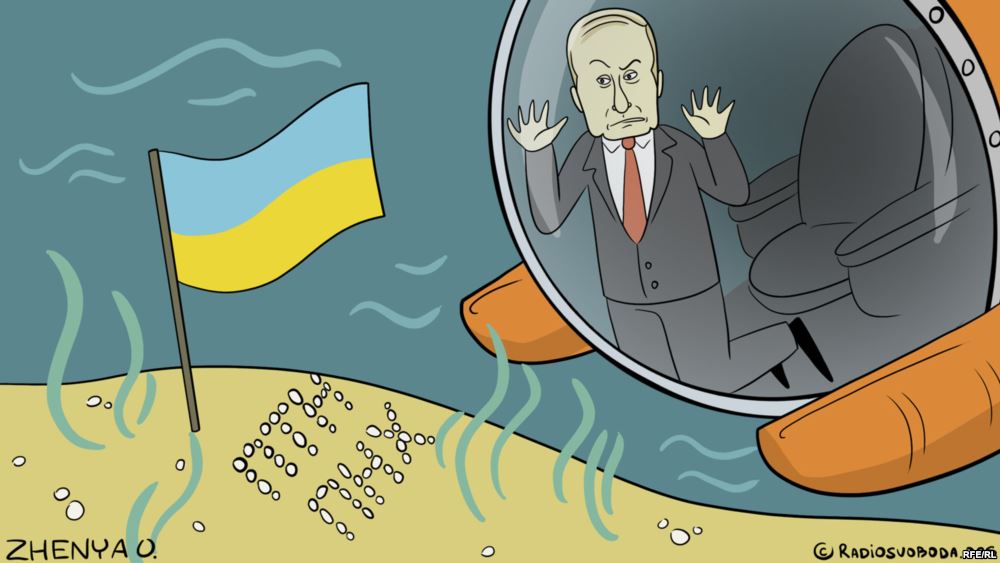At the time of political and economic collapse of a country, even a chauvinistically inclined society has to learn to live according to international law instead of the notions of crooks.
On the second anniversary of the annexation of Crimea, the reaction of the international community can be summarized as follows — what good are all these statements and appeals if Russia continues to control the occupied territories? But it is worth remembering that during the first weeks and even months after annexation, the Kremlin was absolutely convinced that the world would accept it and that even Ukraine would recognize it. What Putin was preparing to offer in “exchange” for Crimea — the Donbas or something else that he has failed to do — is now lost in the darkness of obscurity. But one thing is sure: nothing has worked out for him.
Two years later, the world still views Crimea as part of Ukraine, as it did before the appearance of the “little green men” on the peninsula and the organization of the pseudo-referendum.
Moreover, Crimea continues to be a much more complicated problem than the Donbas. The Donbas is a conflict– whether frozen or unfrozen — that fits into the usual norms of postwar international law.
Incidentally, this was the case with Abkhazia and Ossetia. Russia had actually occupied these Georgian autonomous territories but, instead of annexing them, it declared their independence. And in this case, there is a simple future solution to the problem. It can be reintegration or even coexistence, but it is not a problem that concerns the territorial integrity and borders of Russia itself.
With Crimea, however, it is a question of territorial integrity. In practice this means that Russia today is a state with unrecognized borders — a situation that is not tolerable for the long term. Such a state is dangerous for the world and dangerous for itself. Therefore, the problem will have to be addressed. And there is no reason to reinvent the wheel to do so.
When Indonesia annexed East Timor, the world did not recognize that annexation either, but it could not affect it in any way. However, it was already evident at the time that the dictatorial regime of General Suharto had made a fatal error that sooner or later would lead to the collapse of the regime and the collapse of Indonesia.
And this is what happened. The fate of East Timor was decided by the country’s new leadership. By the way, the vast majority of Indonesians reacted to the annexation of Timor the same way as the vast majority of Russians reacted to the annexation of Crimea. But at the time of political and economic collapse of a country, even a chauvinistically inclined society needs to learn to live according to legislation and international law and not according to the notions of crooks.
And Russians will have to learn this just as did the Indonesians.




